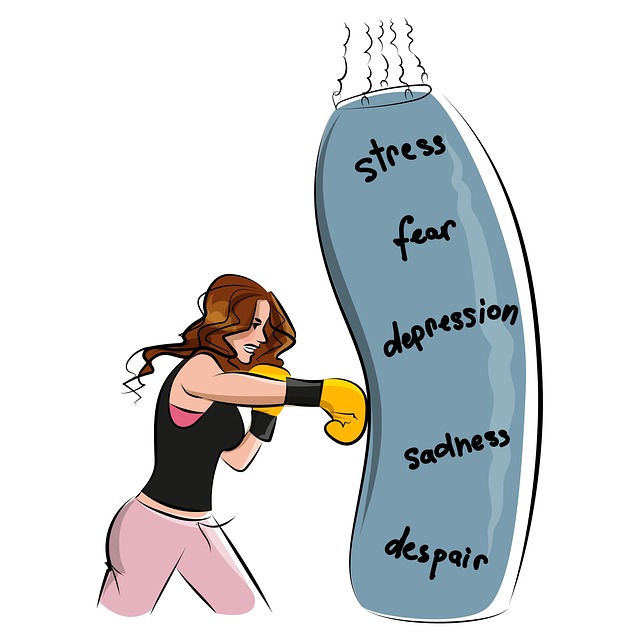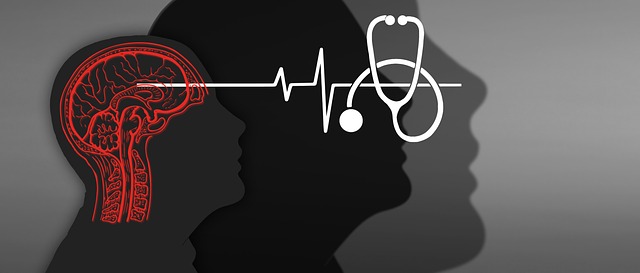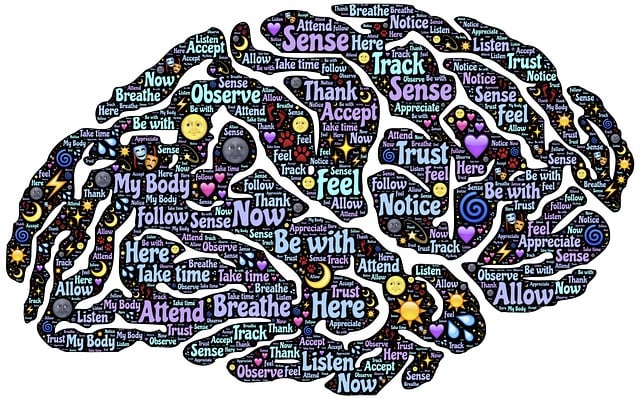Lafayette Men's Issues Therapy specializes in mental wellness group facilitation, creating safe communities for men to connect, share, and heal. Facilitators guide sessions with active listening, non-judgmental attitudes, and structured activities like journaling, empowering participants to build resilience and improve mental health. Effective communication strategies, including open-ended questions and reflective listening, foster emotional healing and strengthen the therapeutic bond. The nurturing environment encourages trust, meaningful connections, and open dialogue on sensitive topics, improving mood management. Structured assessments and feedback mechanisms measure group progress, allowing facilitators to adapt techniques for evolving needs, fostering a confident and supportive atmosphere.
Mental wellness group facilitation plays a pivotal role in therapeutic settings, especially in Lafayette Men’s Issues Therapy. This article explores effective techniques for facilitators to create engaging environments, enhance communication, and measure impact. From understanding group dynamics to implementing supportive strategies, these tactics are crucial for successful group therapy sessions. Discover how skilled facilitators can guide individuals towards healing and personal growth within the context of Lafayette Men’s Issues Therapy.
- Understanding Mental Wellness Group Facilitation
- Role of a Facilitator in Lafayette Mens Issues Therapy
- Effective Communication Strategies for Group Sessions
- Engaging and Supportive Environment Creation
- Measuring and Enhancing the Impact of Group Therapy
Understanding Mental Wellness Group Facilitation

Mental wellness group facilitation is a specialized skill that goes beyond traditional therapy settings. It involves creating a safe and supportive environment where individuals can connect, share experiences, and learn from one another. This approach recognizes the power of community in fostering emotional healing processes and promoting mental well-being. Facilitators play a crucial role in guiding conversations, encouraging active participation, and ensuring every member feels heard and respected.
In the context of Lafayette Men’s Issues Therapy, understanding these facilitation techniques is essential for addressing unique challenges faced by men. By incorporating practices that support Self-Care Routine Development for Better Mental Health, facilitators enable participants to manage their moods effectively. This can be achieved through various activities, such as mindfulness exercises, goal-setting sessions, and the exchange of coping strategies, ultimately enhancing overall mental health.
Role of a Facilitator in Lafayette Mens Issues Therapy

In Lafayette Mens Issues Therapy, the facilitator plays a pivotal role in fostering a safe and supportive environment for men to explore their mental wellness. They act as a guide, using techniques like active listening and non-judgmental presence to encourage open dialogue. The facilitators facilitate discussions around sensitive topics, helping participants process emotions, share experiences, and gain new perspectives. Through structured activities, such as Mental Wellness Journaling Exercises, the facilitator aids in resilience building and inner strength development.
By providing clear guidance during group sessions, these professionals create a space where men can learn from each other’s journeys, cultivate coping strategies, and develop personal growth. Their expertise lies in navigating complex emotions and facilitating meaningful connections, ensuring every participant feels heard and supported on their path to improved mental wellness.
Effective Communication Strategies for Group Sessions

In facilitating mental wellness group sessions, particularly at Lafayette Mens Issues Therapy, effective communication strategies are key to fostering an open and supportive environment. Group facilitators should encourage active listening among members, ensuring that each individual feels heard and validated. This not only promotes emotional healing processes but also strengthens the therapeutic bond within the group dynamic. Utilizing open-ended questions, reflective listening, and non-verbal cues can help facilitate meaningful discussions and enhance understanding among participants.
Moreover, incorporating Mind Over Matter principles into these sessions can significantly impact burnout prevention strategies for healthcare providers facilitating the groups. By guiding members to focus on positive affirmations, reframing negative thoughts, and cultivating a mindset of resilience, facilitators contribute to personal growth while mitigating the potential for professional burnout. This holistic approach not only benefits the participants but also ensures that the facilitators themselves remain engaged and effective in their roles at Lafayette Mens Issues Therapy.
Engaging and Supportive Environment Creation

Creating an engaging and supportive environment is a cornerstone of effective mental wellness group facilitation, particularly within the context of Lafayette Mens Issues Therapy. This begins with establishing a safe space where individuals feel accepted and understood. Facilitators should encourage active participation by fostering open dialogue, ensuring every member’s voice is heard, and validating their experiences. Techniques like using facilitative questions and reflective listening promote emotional healing processes and strengthen inner strength development among group members.
The atmosphere should be conducive to building trust and fostering meaningful connections. By promoting a non-judgmental environment, facilitators enable individuals to explore sensitive topics more openly, supporting better mood management. Through structured activities and guided discussions, group members can learn from one another’s experiences, gaining insights into their own emotional healing processes. This collective approach not only enhances the therapeutic experience but also empowers participants to navigate life’s challenges with renewed resilience.
Measuring and Enhancing the Impact of Group Therapy

Measuring the impact of group therapy is a crucial step in enhancing the overall effectiveness of mental wellness programs, especially tailored for men’s issues like those offered at Lafayette Mens Issues Therapy. Through structured assessments and feedback mechanisms, facilitators can gain valuable insights into the group’s progress. This data allows them to adapt their facilitation techniques, ensuring that each session aligns with the group’s evolving needs.
One effective method is incorporating self-awareness exercises that encourage members to reflect on their experiences and emotions. Additionally, conflict resolution techniques learned during sessions can be evaluated through post-group discussions or surveys, gauging improvements in communication and problem-solving skills. These strategies not only measure success but also provide a platform for fostering a more confident and supportive environment within the group, as members learn from each other’s experiences.
Mental wellness group facilitation plays a pivotal role in therapeutic settings, particularly in Lafayette Mens Issues Therapy. By fostering an engaging and supportive environment, facilitators can harness the power of peer-to-peer interaction to enhance recovery. Utilizing effective communication strategies, such as active listening and open dialogue, therapists enable individuals to navigate their mental health journeys together. Measuring the impact of group therapy sessions is crucial for continuous improvement, ensuring that each session resonates with participants and promotes positive outcomes. Through these techniques, facilitators can create a profound and supportive network, revolutionizing mental wellness support in Lafayette.














